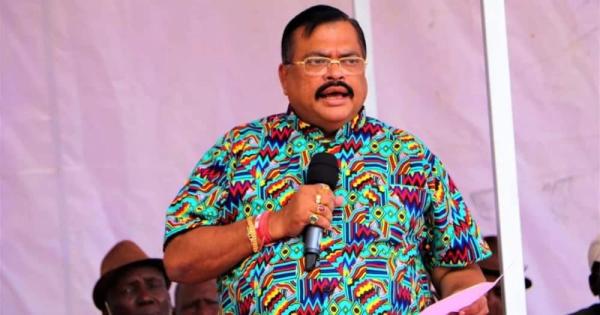Taskforce recommends criminal probe against Mediheal founder over kidney transplant scandal

Alarmingly, the nationality of 38.9 per cent of the donors could not be verified in the report, with 60 individuals failing to disclose their country of origin.
A government-appointed committee investigating claims of organ trafficking at Mediheal Hospital in Eldoret has recommended immediate criminal investigations against the hospital’s founder, Dr Swarup Mishra, over his alleged involvement in a kidney transplant scandal.
The damning findings are contained in a 314-page report submitted to Health Cabinet Secretary Aden Duale on Tuesday.
The report, compiled after three months of investigations, revealed serious irregularities suggesting the existence of an international organ trafficking ring operating through the hospital.
According to the committee, which was chaired by Prof Elizabeth Bukusi of the Kenya Medical Research Institute, Mediheal facilitated 417 kidney donations and 340 transplants between 2018 and March 2025. Men accounted for 77 per cent of both donors and recipients.
The report showed that 44 per cent of the donors were Kenyans, while 16.8 per cent were foreigners.
Alarmingly, the nationality of 38.9 per cent of the donors could not be verified, with 60 individuals failing to disclose their country of origin.
Identified foreign donors included individuals from Burundi (1.54 per cent), Ethiopia (1.10 per cent), Congo and Germany (each 0.88 per cent), and the United States (0.66 per cent).
The taskforce raised red flags over the authenticity of some donor documents, citing discrepancies in signatures and questionable claims that some donors were simply “mutual friends” of the recipients.
The committee also discovered that one surgeon and an anesthesiologist at Mediheal handled 24 transplants within a span of 14 days, pointing to possible overwork, poor documentation, and serious risks to patient safety.
Among those the committee wants criminally investigated alongside Dr Mishra are Dr A. S. Murthy, a nephrologist at the hospital, Dr Sananda Bag, a urologist and transplant surgeon, and Dr Vijay Kumar, an anesthesiologist. The panel said their actions may have violated national transplant laws and breached ethical standards.
Dr Murthy was singled out for reportedly running a “one-man show” during procedures that are supposed to be conducted by a team of medical specialists.
The committee has also asked the ministry to continue the suspension of Mediheal Hospital until investigations are completed.
Further, the report recommended a probe into the Kenya Medical Practitioners and Dentists Council (KMPDC) over what it described as possible regulatory failures and potential criminal collusion for failing to act on repeated complaints about Mediheal’s transplant activities.
“The report contains comprehensive findings and recommendations aimed at strengthening regulatory frameworks, enhancing transparency, and preventing malpractice in transplant services,” CS Duale said while receiving the report.
He assured that the government had already begun reviewing the findings and pledged that the recommendations would be fully implemented.
“I want to assure you that the report will not find itself on the shelves. It will be implemented. We will give it the attention it deserves. I will take it to Parliament, I will take it to Cabinet, and it’s for the people of Kenya to read that report,” said Duale.
The kidney transplant scandal at Mediheal sparked national outrage earlier this year, leading to the formation of the 13-member committee through Gazette Notice No. 78 dated April 23, 2025.
On June 9, Mediheal’s management, led by lawyer Katwa Kigen, appeared before the committee in a closed-door session in Eldoret.
“We had already submitted our documents and position regarding kidney transplants. Today, we also appeared to demonstrate our full willingness to cooperate in this matter,” Kigen said after the meeting.
He added that the hospital had been actively engaged in efforts to shape new legislation for regulating organ and tissue transplant procedures in the country.
“Our management remains available to clarify any issues raised by the committee or any investigating body,” Kigen told reporters.
Besides highlighting gaps in law enforcement, the committee’s report called for reforms to strengthen ethical oversight in kidney transplant services. CS Duale noted that the recommendations would help reshape the entire sector.
